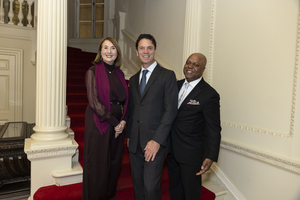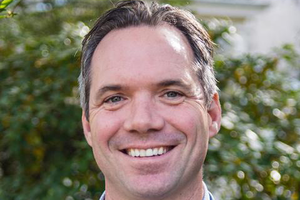What is professional judgment and how do we measure and develop it? Over the years, it’s been well-documented that leadership is becoming increasingly complex, and Penn GSE is focused on driving the development of high-quality leaders who can work through unexpected and tricky problems (think pandemic or culture wars). Home to a range of renowned leadership programs – from our Mid-Career Doctoral Program in Educational Leadership to the Chief Learning Officer doctoral program, as well as the newly launched McGraw Center for Educational Leadership – Penn GSE is shining a spotlight on what it takes to excel in leadership, including trading ideas with other fields on developing good professional judgment.
Michael Johanek, the Director of the Mid-Career Doctoral Program in Educational Leadership, has become fascinated with the extraordinary challenges of training leaders to encounter and work through sometimes impossible-seeming decisions.
With the backing of the Spencer Foundation, Johanek is bringing together leaders and researchers from around the world and across fields to think through the challenges of in situ – or real-world – judgment. From November 12 to 14, about 20 researchers and practitioners from the U.S., Switzerland, Canada, Hong Kong, and Chile gathered as a working group to present findings and theories on individual and collective judgment – from identifying the stages of decision-making, the moral and ethical aspects of judgment, and even how to simulate and work through problems of judgment.

Among the many attendees were representatives from Penn’s School of Nursing, John Jay College of Criminal Justice, McGill University, the National Council of State Boards of Nursing (NCSBN), Education University of Hong Kong, the International Institute for Management Development (Switzerland), the National Science Foundation, and Catholic University in Chile, who all gathered to discuss professional judgment across nursing, medicine, business, education, and criminal justice.
The working group ended the first-of-its-kind event with a discussion about leveraging this new cross-disciplinary network to identify promising directions for further research and field formation.
“This talented international group has now launched a global effort to enhance how health services, education, business, and policing play out every day in practice – in the myriad daily judgment calls professionals make,” said Johanek. “These on-the-ground judgment calls determine whether our ambitions for a better world actually pan out – and I’m excited about the enormous possibilities to powerfully improve performance across so many fields.”
The Judgment Project builds on Johanek’s previous cross-school collaborations on the topic. Among these: Johanek worked with experts at the Perelman School of Medicine and GSE’s Racial Empowerment Collaborative to apply the Standard Patient protocol to the formation of educational leaders. The Schools of Nursing, Social Policy and Practice, and GSE combined on a Penn Futures Project to build a cross-professional simulation regarding high school youth. GSE’s CPRE (Consortium for Policy Research in Education) is pursuing the first assessment of situated judgment in educational leadership, and Johanek has teamed up with the Penn Chaplaincy and other Penn GSE faculty to explore leadership judgment in religiously plural communities.
Media Inquiries
Penn GSE Communications is here to help reporters connect with the education experts they need.






